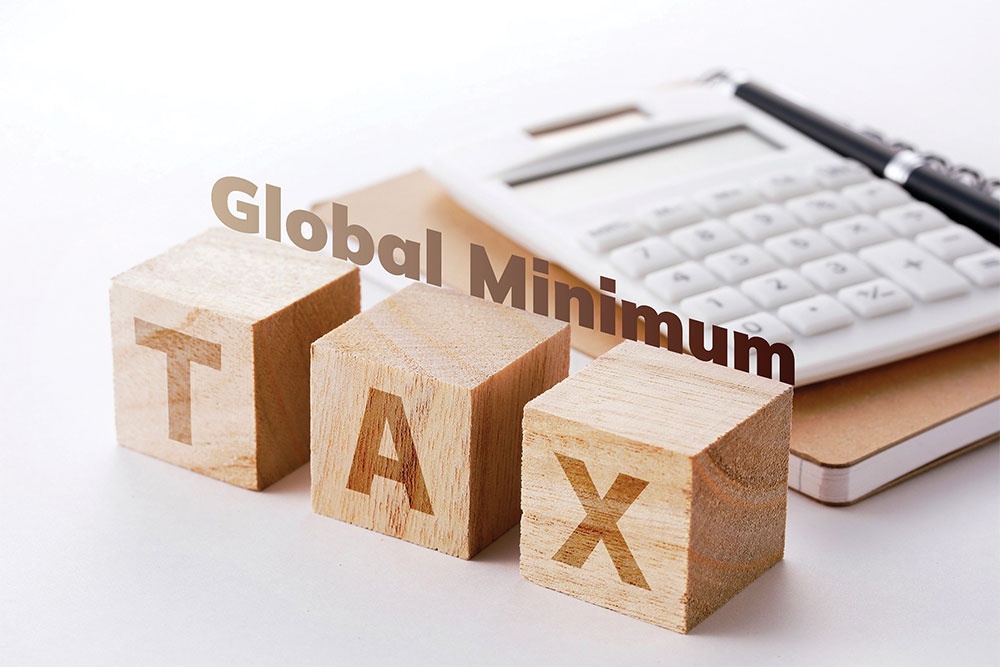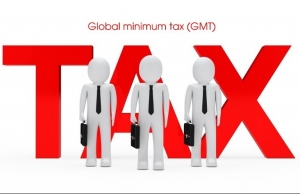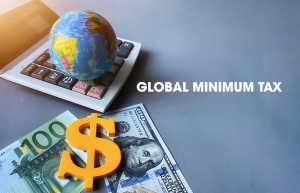Incentives abound for minimum tax adoption
 |
| Over 120 foreign-invested enterprises are likely to be affected by the changes here, Photo: Shutterstock |
Nguyen Tran Minh Tri, a representative from the Institute of World Economics and Politics under the Vietnam Academy of Social Sciences, proposed that the government should, as soon as possible, enact new incentives for foreign-invested enterprises (FIEs), especially those with large-scale projects, to help the country continue to be a magnet for foreign investment.
Vietnam is to apply the global minimum tax (GMT) of 15 per cent on multinational corporations (MNCs) with a revenue exceeding €750 million ($821.6) million from January 2024.
“This means that the country’s investment climate will be less attractive,” Tri stressed at a forum on Vietnam’s 2021-2024 economic performance in Hanoi earlier this month. “To maintain existing incentives for FIEs, the government needs to soon offer non-tax support.”
The National Assembly a month ago passed a resolution on the imposition of top-up corporate income tax (CIT) of 15 per cent under Global Anti-Base Erosion model rules, which will take effect on January 1 next year until the country’s new law on CIT is released.
Under the resolution’s Article 2 on taxpayers, the taxpayers in Vietnam include a member company of an MNC with a turnover equivalent to $821.6 million or more in the consolidated financial statements of the ultimate parent company for at least two of the four years immediately preceding the fiscal year.
For Vietnam, the imposition of the GMT will help ensure the country’s right to levy the tax, in line with the international practices and trend currently deployed by so many nations.
Under a government report on assessing the impact of the resolution, based on 2022 CIT data analysis, it calculated that over 120 FIEs will be subject to the resolution, with a total amount of top-up CIT of about $616 million.
Tri said that, in principle, the support of enterprises which are subject to the GMT is applied after enterprises have fulfilled their GMT obligation in Vietnam.
“The government can use this payment to support businesses in the form of costs for research and development, investment into equipment, and production of high technologies. For example, India has a policy on providing a specific sum of money for each unit of product sold out in the market,” Tri said.
“This support policy can be applied to all types of enterprises based on characteristics of their specialised operations. This will not violate the wider GMT principles,” Tri added.
Vietnam’s current general CIT rate is 20 per cent, which is higher than the GMT rate. However, this rate is just of nominal value because all major foreign-invested projects in Vietnam have been currently enjoying special incentives policies covering various investment fields, locations, and labour use scales.
Thus, many MNCs are entitled to a four-year tax exemption and a half tax reduction for nine years, or a two-year tax exemption and half tax decrease for four years, so the total amount of their paid tax is less than 15 per cent.
“If Vietnam does not collect the GMT from these enterprises, this tax value difference will fall into the hands of the countries where the parent companies are based,” said the General Department of Taxation’s deputy general director Dang Ngoc Minh.
At present, the department is studying this policy, which will replace the existing CIT incentives for FIEs, which will be affected by the GMT.
“The upcoming policy incentives must be based on the amounts the businesses have spent, ensuring they directly support the investment. This is especially true for large corporations and multinationals that own core technology, as well as priority sectors, such as semiconductor technology and chip manufacturing,” Minh said. “Simultaneously, it is necessary to accompany enterprises right from the start, facilitating construction and the procurement of equipment and machinery while providing housing for personnel, infrastructure, and more.”
According to Vu Ngoc Thang, tax manager at consultancy firm Dezan Shira & Associates, if tax incentives are invalidated in Vietnam and there are no appropriate measures in place, other countries will benefit from top-up taxes and Vietnam will miss out on billions of US dollars of tax outflows to other countries’ budgets.
In the global context, the major stakeholders are quickly responding to the adoption of GMT. Specifically, it is being carried out by the EU, the UK, and South Korea in 2024. Vietnam is strongly attracting investment from these nations, as well as the United States and other powerhouses. What is more, Malaysia and Thailand are set to implement the GMT in 2024 and 2025, respectively, and they are big rivals of Vietnam in luring funding from abroad.
“In this respect, Vietnam must devise certain solutions to protect its taxing rights and maintain sustainable foreign inflows by offering alternative incentives,” Thang said.
Meanwhile, Rizwan Khan, partner at consultancy firm Acclime Vietnam, said that Vietnam may be able to maintain its appeal by carrying out other policies to offset the negative effects of the GMT.
“For example, Vietnam could improve its public services, governance, and regulatory quality. It could also diversify its foreign investment sources, and foster more links with domestic firms,” Khan said
According to the International Monetary Fund (IMF), the GMT adoption in 2024 will increase tax revenues but will require improvements to the investment climate. Vietnam could be among those most affected by the GMT – as it has often granted tax incentives to MNCs to attract FDI, including lower income taxes, that will be eroded.
“The effects of the higher tax can be compensated by improving the business environment, upgrading infrastructure, and enhancing human capital,” the IMF stated.
 | Vietnam set to implement global minimum tax Vietnam is poised to adopt global minimum tax (GMT) regulations, a move set to impact 122 foreign investment conglomerates and strengthen the country's fiscal framework in line with international standards. |
 | Vietnam will remain FDI magnet with global minimum tax in place On November 29, the National Assembly of Vietnam approved a resolution on applying additional corporate income tax following the Global Anti-Base Erosion Rules, which is expected to have an impact on foreign direct investment (FDI) inflows into Vietnam. |
 | Vietnam primed for GMT adoption With a long-awaited resolution adopted by the legislature, Vietnam now has a legal framework for applying top-up corporate income tax under a new international system. |
 | Vietnam races to stay competitive with new GMT The international community is speeding towards the implementation of a global minimum tax, and Vietnam is no exception. With countries around the world revamping their tax systems, Vietnam must also navigate this new landscape in order to stay competitive and draw in new foreign investment. |
What the stars mean:
★ Poor ★ ★ Promising ★★★ Good ★★★★ Very good ★★★★★ Exceptional
Related Contents
Latest News
More News
- SK Innovation-led consortium wins $2.3 billion LNG project in Nghe An (February 25, 2026 | 07:56)
- THACO opens $70 million manufacturing complex in Danang (February 25, 2026 | 07:54)
- Phu Quoc International Airport expansion approved to meet rising demand (February 24, 2026 | 10:00)
- Bac Giang International Logistics Centre faces land clearance barrier (February 24, 2026 | 08:00)
- Bright prospects abound in European investment (February 19, 2026 | 20:27)
- Internal strengths attest to commitment to progress (February 19, 2026 | 20:13)
- Vietnam, New Zealand seek level-up in ties (February 19, 2026 | 18:06)
- Untapped potential in relations with Indonesia (February 19, 2026 | 17:56)
- German strengths match Vietnamese aspirations (February 19, 2026 | 17:40)
- Kim Long Motor and AOJ Suzhou enter strategic partnership (February 16, 2026 | 13:27)

 Tag:
Tag:

















 Mobile Version
Mobile Version